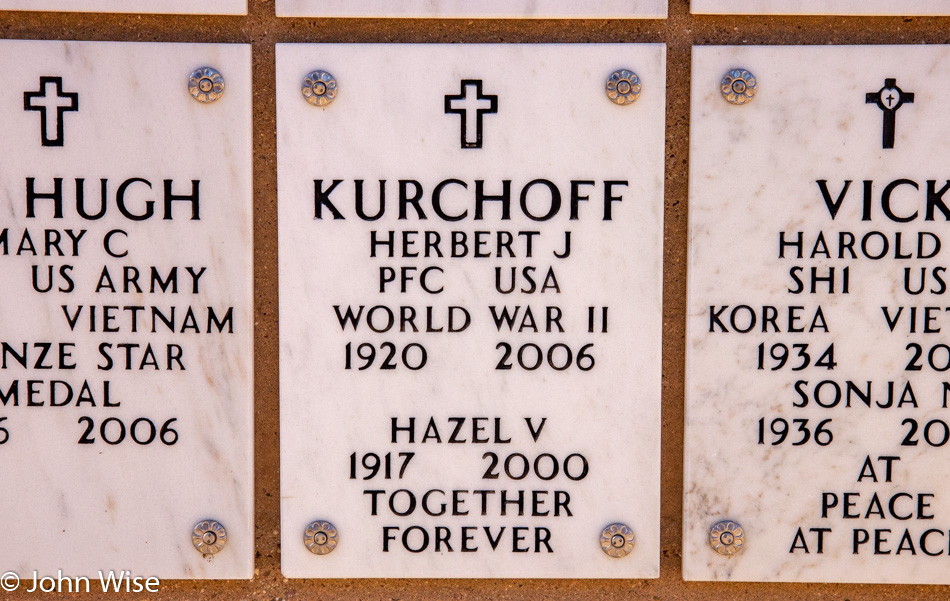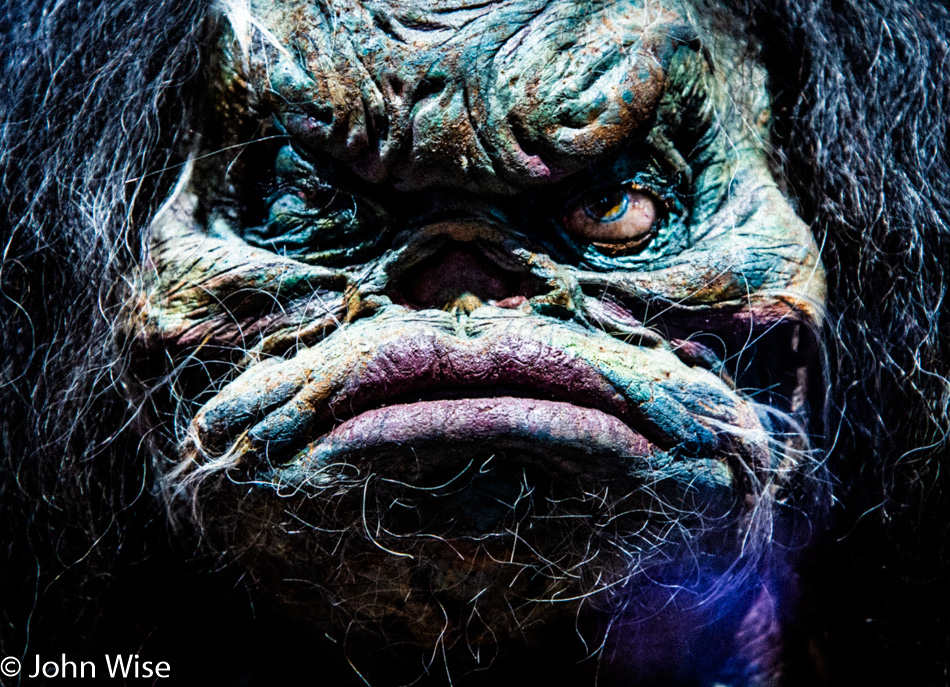
I stopped at the National Memorial Cemetery of Arizona to visit the grave of my grandfather for the first time since he passed away. My maternal grandfather died on January 17, 2006. I’d seen him in hospice shortly before, which of course was a bittersweet moment in that I was able to say hi, but it was to be the last goodbye.
I have fond memories of the man that goes back to my earliest childhood. I still remember being on the back of his yacht at the Buffalo Yacht Club on the Niagara River in Buffalo, New York, on July 20, 1969, when Neil Armstrong stepped out of the Apollo capsule and onto the moon. Everyone was drawn in around a small black & white TV and told me to pay close attention because this was a very important moment that I should never forget. It got stuck there just as the shooting of Martin Luther King Jr did a year before on my birthday.
My grandfather owned and operated a painting business and as I bounced around between family members while my irresponsible raging young parents did everything they could to avoid raising my sister and me, he would take me out to his job sites and teach me to paint or help get things for him and his partner Walter Painter. I’m sure that wasn’t Walter’s last name, but that’s how I knew him.
Regarding Hazel, well, she and I didn’t get along. I never felt she had any love for me which looking back was understandable, as my mom got pregnant with me at age 14 had embarrassed the Kurchoffs. Their striving to be an upright standing part of the Buffalo social elites was made difficult by their daughter in her sophomore year of high school carrying the child of a blue-collar schlub. After I was born Hazel also learned that this man she already despised was also a violent person who frequently beat their daughter. My father taught me that her real name was Witch Hazel. The damage was permanent and even in her later years, her acerbic tongue and sneer towards me never allowed the wall to fall.
After Hazel’s death, in Herbie’s later years I was able to return the favor of hanging out and he and I would frequently get lunch, I’d take him for a haircut, or we’d go for a drive out somewhere in Arizona. A year before he died, his sister, my great aunt Eleanor, Herbie, and I took a two-week road trip over to Florida. Our mission was to visit some family I’d never met.
You’ll never know your favorite relatives as much as you would like to. The older ones, who we knew when we were too young and naive to understand the importance of trying to get to know them better, will likely be the first to pass out of our lives. Sadly, it mostly happens during our 20’s to ’40s when we are deeply engrossed in our own lives. Then in our 50’s, we start to truly understand the importance of deeper relationships that resonate warmly in our memories, but then those loved ones are gone.
